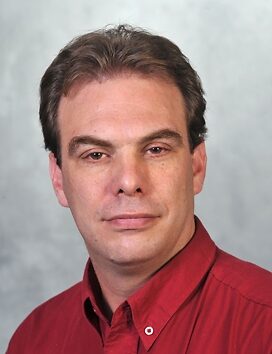"High Open-Circuit Voltage Cells Based on Organic Lead Halide Perovskites" Saar Kirmayer

Date
Location
Description
Energy Materials and Surface Sciences Unit (Qi Unit) would like to invite you to the seminar by Dr. Kirmayer from Weizmann Institute of Science TODAY.
----------------------------------------------------------------------
Date: Monday, September 22, 2014 【TODAY】
Time: 14:00-15:00 13:00-14:00
Venue: D015, Lab1
----------------------------------------------------------------------
Speaker:
Dr. Saar Kirmayer
Department of Materials and Interfaces
Weizmann Institute of Science
Title:
High Open-Circuit Voltage Cells Based on Organic Lead Halide Perovskites
Abstract:
Whether used as the top cell in a multi-junction stack or to drive electrochemical reactions, solar cells with high open circuit voltages (VOC) are an important tool in the efforts for sunlight energy harvesting. Achieving this requires a combination of a suitable energy band structure together with good charge collection kinetics. Solution-processed organic-inorganic lead halide perovskite absorbers, with their high open circuit voltage to band-gap ratio, are particularly suited for this purpose.
Here methylammonium lead bromide and its mixed halide form, both with an optical band-gap of 2.3 eV were used as absorbers in a mesoporous p-i-n device configuration. Through judicious selection of the organic hole conductor with suitable band alignment and band-gap to minimize losses, a solar cell showing VOC above 1.5 V and short circuit currents of ca. 4 mA/cm2 was demonstrated. In addition, our efforts to synthesize an absorber with an optical band-gap of 1.7-2.0 eV, more suitable in the top cell for Si tandem system, are described. Analysis of the loss mechanisms and the proposed route for further improvement of the cell performance are discussed.
Biography:
Dr. Saar Kirmayer received his BSc (1997) and MSc (2002) from the department of Chemical Engineering at the Technion, Israel Institute of Technology. After a few years in the semiconductors industry he returned to get his PhD in Material Science and Engineering from the Technion (2008). After two years in UC Berkeley, he returned to the Weizmann Institute in Israel (2010) where he is currently working on studying new materials for solar cells applications.
Host:
Prof. Yabing Qi
============================================
We look forward to seeing many of you at the seminar.
Sincerely yours,
Ayako Masaki
Energy Materials and Surface Sciences Unit
Attachments
Subscribe to the OIST Calendar: Right-click to download, then open in your calendar application.



